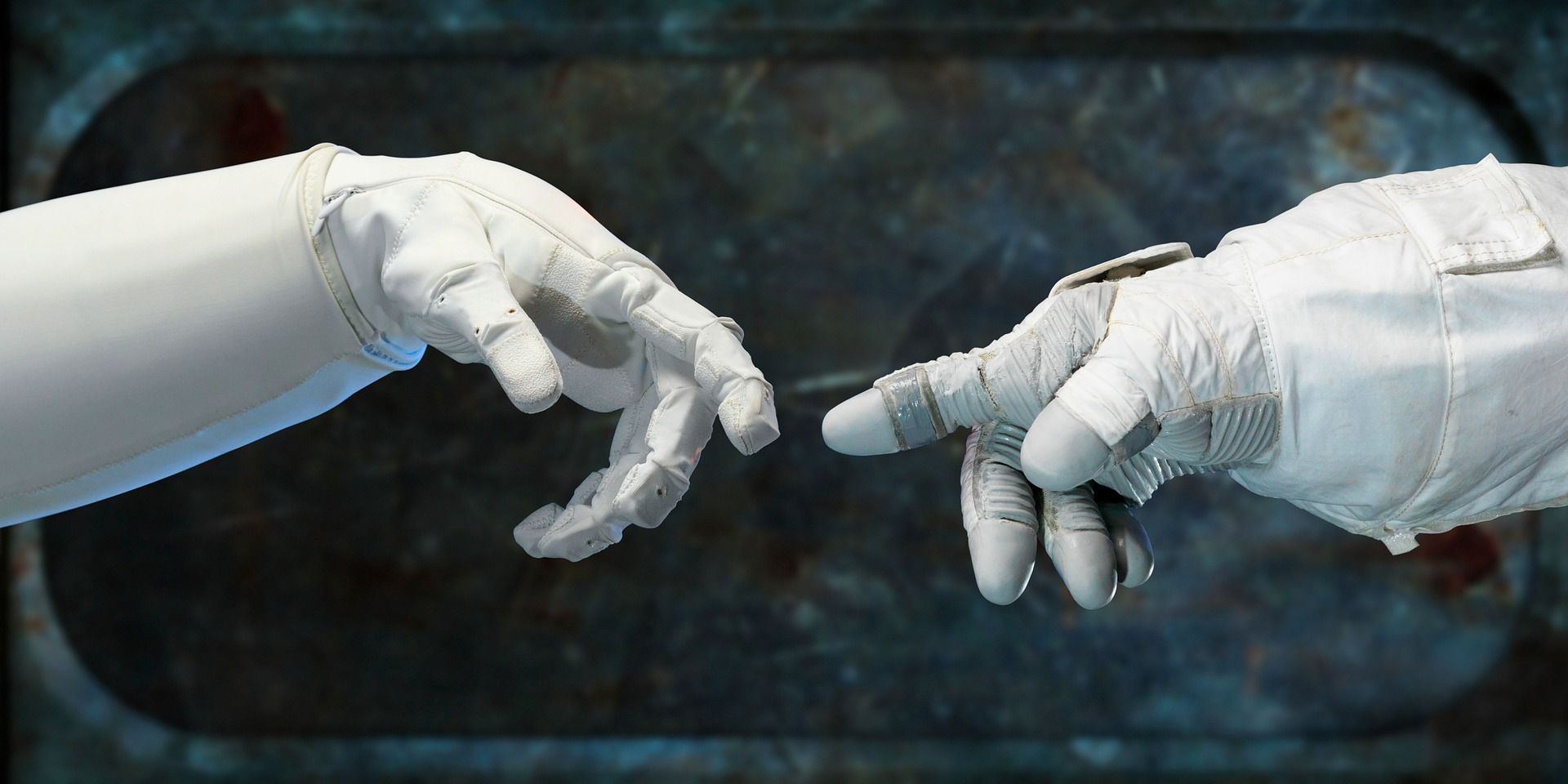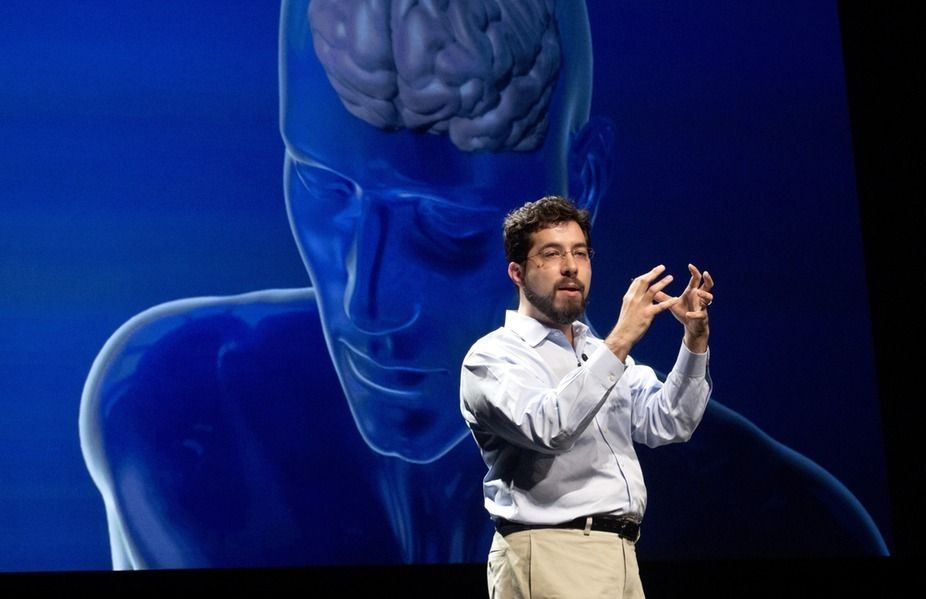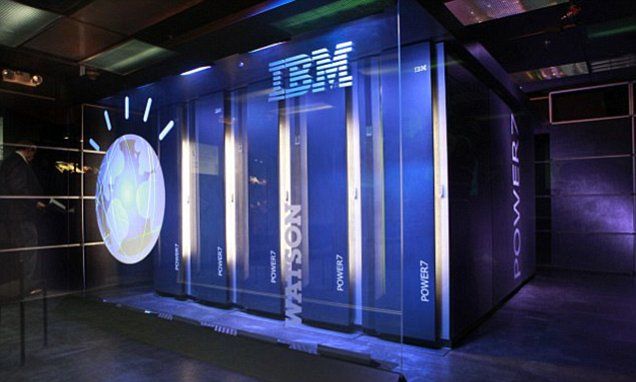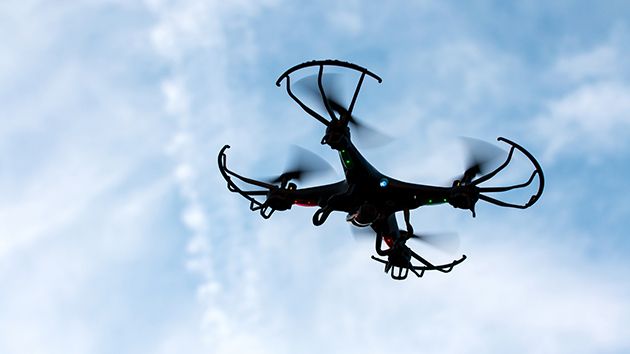Page 10557
Jun 8, 2017
A Hardware Update for the Human Brain
Posted by Carse Peel in categories: computing, neuroscience
From Silicon Valley startups to the U.S. Department of Defense, scientists and engineers are hard at work on a brain-computer interface that could turn us into programmable, debuggable machines.
Jun 8, 2017
Therapeutic Mind Control Worked In Rats. Are Humans Next?
Posted by Carse Peel in categories: biotech/medical, neuroscience
B rain surgery is one of the most delicate, invasive procedures in medicine. Many times, anesthesia is not involved; sometimes, an electrode is inserted into the brain for deep brain stimulation.
Research published Thursday in the journal Cell promises a safer alternative to these otherwise intrusive ways to get in your head: stimulating neurons deep in the brain without any invasive procedures. The procedure, called temporal interference stimulation, is the latest invention of MIT neuroscientist and engineer Edward Boyden.
“Brief stimulation of the brain can actually cause the brain to clean up the amyloid plaques that are a hallmark of Alzheimer’s Disease,” Boyden tells Inverse. He feels that his new technology can help with a number of neurological conditions without many of the hazards inherent to invasive techniques.
Continue reading “Therapeutic Mind Control Worked In Rats. Are Humans Next?” »
Jun 8, 2017
AI is 93% accurate in identifying tumours
Posted by Carse Peel in categories: biotech/medical, robotics/AI
Could AI soon diagnose cancer? New system that ‘doctors can rely on’ is 93% accurate in identifying tumours.
- US firm IBM says its Watson system is capable of accurately identify tumours
- The computer crunches through medical images and patient records quickly
- It compares them to past cases and medical journals to come to a conclusion
- Doctors at 55 hospitals around the world have been using the AI to help them
By Richard Gray for MailOnline
Jun 8, 2017
‘AI is good for the world’ insists Sophia the humanoid robot
Posted by Carse Peel in categories: humor, robotics/AI
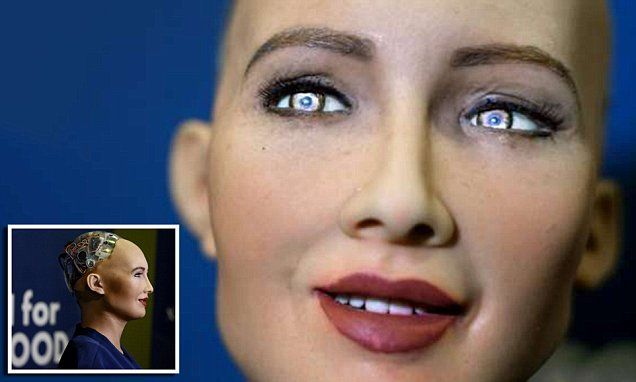
Sophia smiles mischievously, bats her eyelids and tells a joke.
Without the mess of cables that make up the back of her head, you could almost mistake her for a human.
Continue reading “‘AI is good for the world’ insists Sophia the humanoid robot” »
Jun 8, 2017
Amazon exec: Alexa should be able to talk to Siri
Posted by Carse Peel in category: robotics/AI
‘If Apple or Google want to come calling, my phone number is out there,’ said the Amazon exec in charge of Alexa.
Jun 8, 2017
DARPA ‘transformer’ drones change their mission hardware mid-flight
Posted by Carse Peel in categories: drones, military, robotics/AI
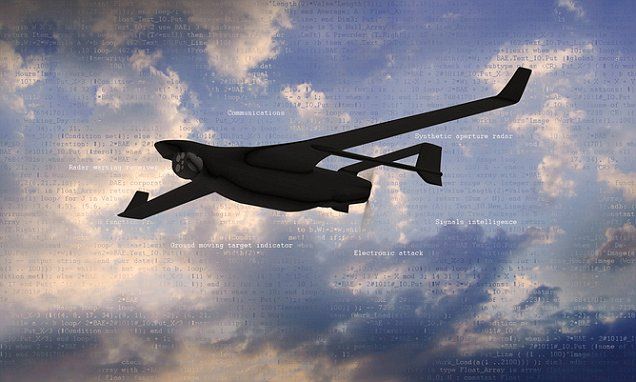
DARPA has unveiled a system that transforms its unmanned aerial systems (UAS) into warfare machines capable of conducting different missions without human intervention.
Prior to the announcement, the compact drones were only able to carry a single-function payload, which limited their abilities to one specific task in the field.
Continue reading “DARPA ‘transformer’ drones change their mission hardware mid-flight” »
Jun 8, 2017
Drone usage by local police, fire departments quickly increasing
Posted by Carse Peel in categories: drones, law enforcement, robotics/AI
WASHINGTON — Approximately a dozen police, fire and emergency agencies surrounding Washington, D.C. are using drones to capture criminal suspects and fight fires, but the unmanned aircraft systems also are sparking privacy concerns and legislation.
At least 347 state and local police, sheriff, fire and emergency units in the United States have acquired drones, according to an April report by Center for the Study of the Drone at Bard College.
“More and more departments in the public safety space, particularly in law enforcement, are acquiring drones for a range of operations,” says Dan Gettinger, co-director of the research group.
Continue reading “Drone usage by local police, fire departments quickly increasing” »
Jun 8, 2017
Boeing studies pilotless planes as it ponders next jetliner
Posted by Carse Peel in categories: computing, drones
SEATTLE Boeing Co is looking ahead to a brave new world where jetliners fly without pilots and aims to test some of the technology next year, the world’s biggest plane maker said in a briefing ahead of the Paris Airshow.
The idea may seem far-fetched but with self-flying drones available for less than $1,000, “the basic building blocks of the technology clearly are available,” said Mike Sinnett, Boeing’s vice president of product development.
Jetliners can already take off, cruise and land using their onboard flight computers and the number of pilots on a standard passenger plane has dropped to two from three over the years.
Continue reading “Boeing studies pilotless planes as it ponders next jetliner” »
Jun 8, 2017
Boosting Autophagy to treat heart disease
Posted by Steve Hill in categories: biotech/medical, life extension, sustainability
Increasing autophagy in macrophages is a promising avenue of research aiming at heart disease and other age-related diseaeses.
Today we thought it was a good time to take a look at a new study that demonstrates that increasing autophagy is a good approach to slowing aging and could be the foundation for a variety of therapies to treat age-related diseases.
What is Autophagy?
Continue reading “Boosting Autophagy to treat heart disease” »
